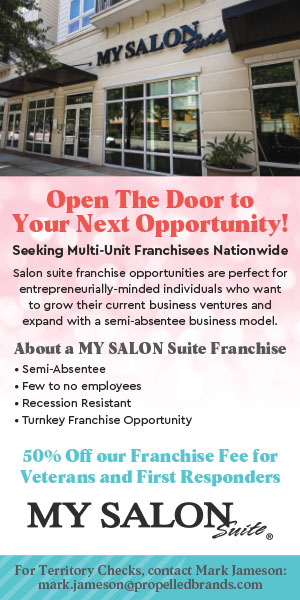Going International: Are You Sure You're Ready?

Many emerging franchisors are flattered and excited when leads start to arrive from overseas, envisioning the revenue and publicity generated by their soon-to-be global brand. But going international isn't for the faint of heart, or for the unprepared. Doing it successfully requires a high level of commitment and resources, and acceptance of a degree of risk.
You may never feel entirely ready to go international, but there are some important benchmarks you should reach before you start considering interest from overseas.
First, you should have a profitable business model in your home country, with systems and procedures that have been proven across multiple locations. Most brands evolve and improve over time, but if you are still tinkering with your underlying business model, or if you have a large number of underperforming franchisees, you aren't ready to export your franchise to another country.
Second, members of your core team should have adequate experience and maturity to interact meaningfully with foreign partners. Don't underestimate the time commitment required by your domestic team to effectively support foreign partners, much more so in their first year of operation. Certain department heads may face a higher time burden, especially those involved in unit-level and franchise marketing, supply chain and vendor management, franchise sales, and franchisee training.
Third, someone on your team should be the primary point of contact for your international partners, both during agreement negotiations and after the deal is signed. In a small company, this could be the president or CEO, someone on your domestic management team, or someone hired specifically to handle international development or support (more on this below). Whoever it is, the individual should have the patience and sensitivity necessary to help your company bridge time zones, cultures, and languages. Every foreign market has unique nuances that may have an impact on how your brand is received, and what adaptations, if any, are necessary for it to succeed. Your designated point person should have the ability to effectively interpret these unique market needs for your home office team, and the ability to communicate company requirements and decisions to your foreign partner.
Fourth, if you expect international expansion to become a major part of your growth strategy, you should add someone to your team to focus specifically on identifying target markets and searching for partners. It's true that good prospects may find their way to your door as a result of social media, PR, vendors, or existing customers. But the process of properly qualifying them and coming to an acceptable agreement can be long and arduous. Find the right person and make it their full-time job to identify great partners and negotiate sustainable agreements.
Fifth, have patience. International deals can take a year or more from the initial contact to agreement signing. Even a fast-paced deal can take six months. Pressure to get deals done faster can result in bad deals with the wrong partners. The up-front money isn't worth it if you enter into a long-term agreement in another country with a partner who will cause legal or operational headaches in the years ahead. Sometimes it will feel like searching for a needle in a haystack, but eventually the right partner for your brand will emerge.
Finally, be prepared to invest significant time and money before your international efforts pay off. In your first year of expansion planning, you will likely spend money on someone's salary, foreign travel, participation in foreign trade shows or other forms of marketing, and legal costs associated with trademark registrations and agreement drafting.
The initial rights fee from your first deal may or may not cover your first-year costs, but keep at it and eventually you may have a truly global brand and a new and sizeable stream of recurring revenue coming from outside your home country.
John Kersh is chief international development officer at Xponential Fitness LLC, whose brands include Club Pilates, CycleBar, StretchLab, Row House, Yoga Six, and AKT. Contact them here.
Share this Feature
Recommended Reading:
Comments:
comments powered by Disqus| ADVERTISE | SPONSORED CONTENT |
FRANCHISE TOPICS
- Multi-Unit Franchising
- Get Started in Franchising
- Growth
- Operations
- Open New Units
- Leadership
- Marketing
- Technology
- Legal
- Awards
- Rankings
- Trends
- Featured Franchise Stories
| ADVERTISE | SPONSORED CONTENT |




 The franchise opportunities listed above are not related to or endorsed by Franchising.com or Franchise Update Media Group. We are not engaged in, supporting, or endorsing any specific franchise, business opportunity, company or individual. No statement in this site is to be construed as a recommendation. We encourage prospective franchise buyers to perform extensive due diligence when considering a franchise opportunity.
The franchise opportunities listed above are not related to or endorsed by Franchising.com or Franchise Update Media Group. We are not engaged in, supporting, or endorsing any specific franchise, business opportunity, company or individual. No statement in this site is to be construed as a recommendation. We encourage prospective franchise buyers to perform extensive due diligence when considering a franchise opportunity.